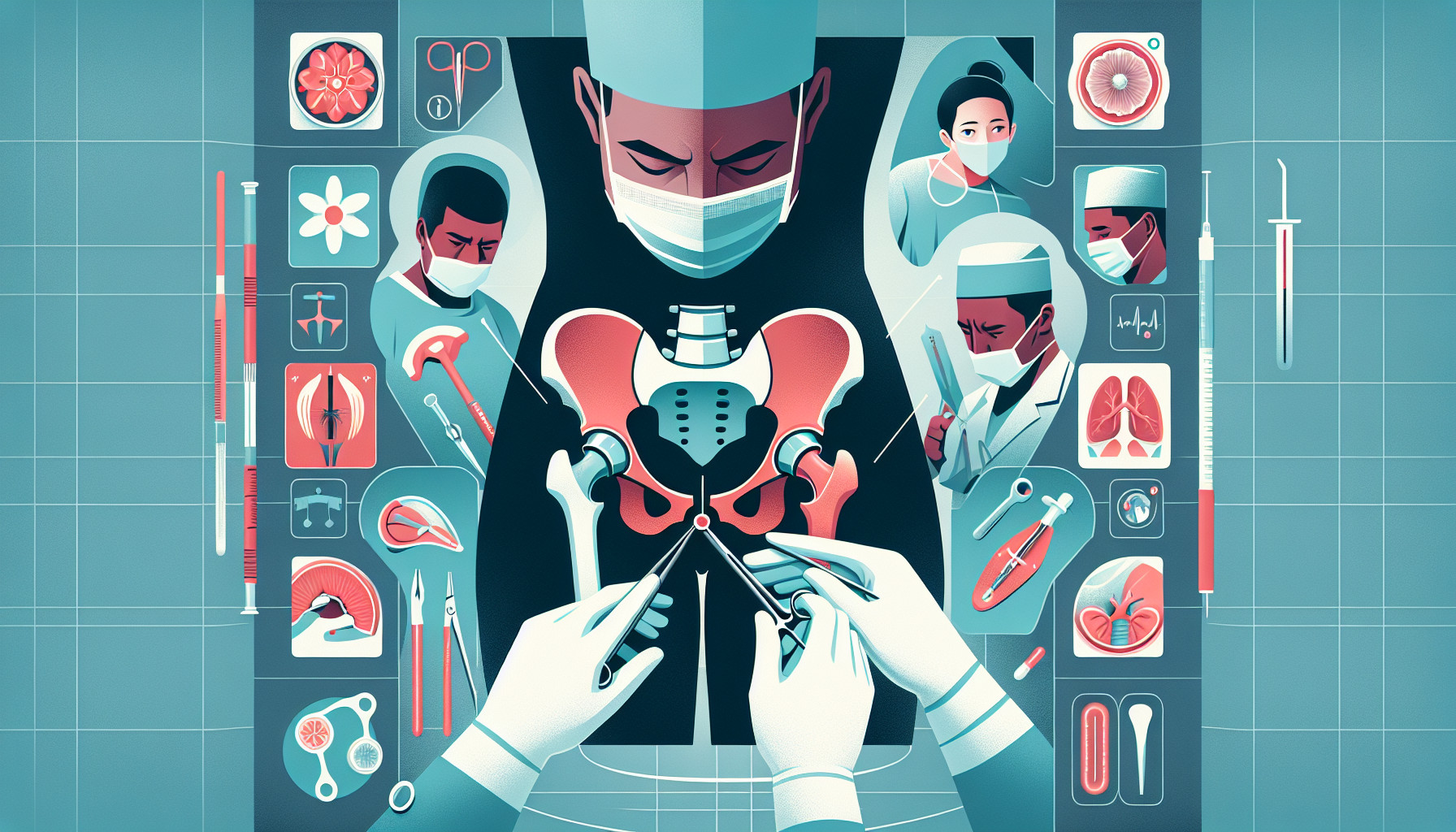Our Summary
This research paper looks at the impact of a patient’s mental health on the success of hip replacement surgery, specifically in terms of pain and function after the operation. The researchers looked at a number of studies and found that patients who had higher levels of depression and anxiety before the surgery had more pain, less functionality, and more complications after the operation. Patients who had lower self-confidence or a tendency to experience physical symptoms related to mental factors also had worse outcomes. The study suggests that doctors should consider a patient’s mental health when discussing expected results of the surgery.
FAQs
- How does a patient’s mental health affect the success of a hip replacement surgery?
- Can pre-existing conditions like depression and anxiety lead to more pain and complications after hip replacement surgery?
- Should doctors consider a patient’s mental health when discussing the expected results of a hip replacement surgery?
Doctor’s Tip
One helpful tip a doctor might tell a patient about hip replacement is to work on improving their mental health before the surgery. This could include seeking therapy, practicing relaxation techniques, staying physically active, and finding ways to reduce stress. Taking care of your mental health can have a positive impact on your physical recovery and overall outcome after hip replacement surgery.
Suitable For
In general, patients who are recommended for hip replacement surgery typically have severe hip pain, stiffness, and limited mobility that significantly impacts their quality of life. Common conditions that may lead to hip replacement surgery include osteoarthritis, rheumatoid arthritis, avascular necrosis, hip fractures, and other degenerative joint diseases.
Patients who have tried non-surgical treatments such as physical therapy, medications, and lifestyle modifications without success may be candidates for hip replacement surgery. Additionally, patients who have difficulty performing daily activities such as walking, climbing stairs, and getting in and out of chairs due to hip pain may also be recommended for surgery.
It is important for patients considering hip replacement surgery to undergo a thorough evaluation by a healthcare provider to determine if they are suitable candidates for the procedure. Factors such as age, overall health, medical history, and the severity of hip joint damage will be taken into consideration when determining if hip replacement surgery is the best treatment option.
Timeline
Before hip replacement surgery:
- Patient experiences hip pain and limited mobility, affecting their quality of life.
- Patient consults with a doctor who recommends hip replacement surgery as a treatment option.
- Patient undergoes pre-operative assessments, including physical exams and imaging tests, to determine if they are a suitable candidate for the surgery.
- Patient receives information about the procedure, potential risks, and expected outcomes from their healthcare provider.
- Patient may need to make lifestyle changes or undergo physical therapy to prepare for the surgery.
After hip replacement surgery:
- Patient undergoes the surgical procedure to replace the damaged hip joint with an artificial implant.
- Patient is monitored closely in the hospital for any post-operative complications and to manage pain.
- Patient begins physical therapy and rehabilitation to regain strength, flexibility, and mobility in the hip joint.
- Patient follows a recovery plan provided by their healthcare team, which may include medication, follow-up appointments, and lifestyle modifications.
- Patient gradually experiences improvements in pain relief, mobility, and overall quality of life as they recover from the surgery.
What to Ask Your Doctor
- What are the potential risks and complications associated with hip replacement surgery?
- What is the expected recovery time and rehabilitation process after the surgery?
- What type of anesthesia will be used during the surgery?
- How long can I expect the hip replacement to last?
- Will I need physical therapy after the surgery?
- What restrictions or limitations will I have after the surgery?
- What are some signs of infection or other complications that I should watch out for after the surgery?
- How can I best prepare for the surgery in terms of diet and exercise?
- Are there any alternative treatments or therapies that I should consider before opting for hip replacement surgery?
- How will my mental health and emotional well-being impact the success of the surgery and my recovery process?
Reference
Authors: O’Connor JP, Holden P, Gagnier JJ. Journal: J Orthop Surg Res. 2022 Oct 17;17(1):457. doi: 10.1186/s13018-022-03355-3. PMID: 36253795
